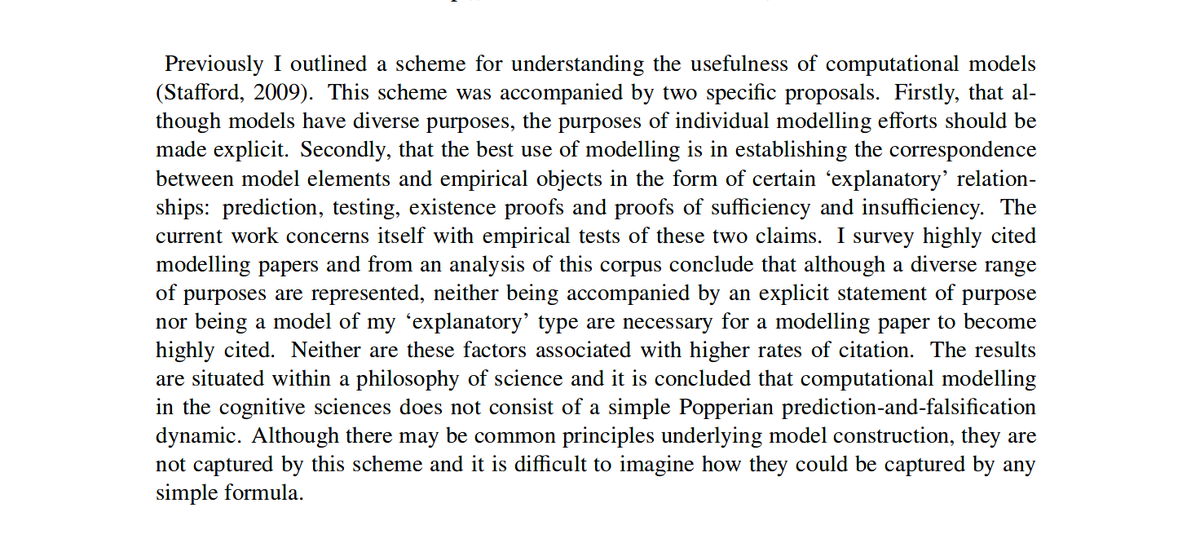And when we do say, we find we don't exactly agree

Were the most highly cited modelling papers about models which focussed on explanatory purposes (explicitly or implicitly)? NO
Model modelling papers were not of any single type - all types in my taxonomy (and a few not in it) were represented.
Stafford, T. (2010). How do we use computational models of cognitive processes? tomstafford.staff.shef.ac.uk/docs/stafford_…










